Dedicated by Uriel Burger for a refuah shleima for Shmuel Yechiel ben Ahuvah Liba. May all those suffering be healed with the coming of Moshiach!
Don’t Be Afraid to Visit Your Broken Places
Why Breaking the Tablets Was Moses' Greatest Accomplishment
- August 22, 2024
- |
- 18 Av 5784
Rabbi YY Jacobson
6482 views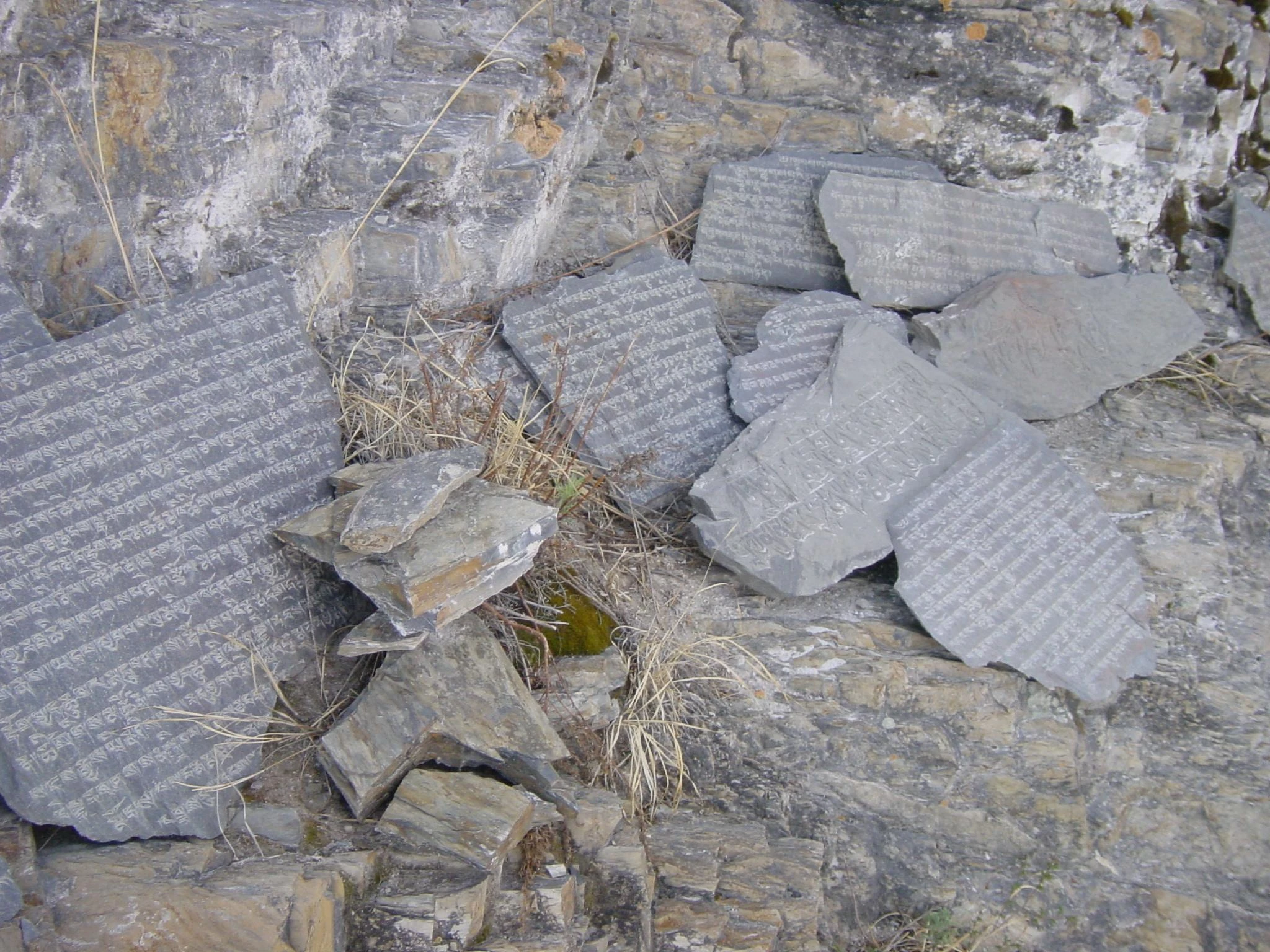
Don’t Be Afraid to Visit Your Broken Places
Why Breaking the Tablets Was Moses' Greatest Accomplishment
Rabbi YY Jacobson
- August 22, 2024
"The world breaks everyone, and afterwards some are stronger in the broken places.” -- Ernest Hemingway
Broken
The simple reading of the story (recorded twice in Torah, in Exodus, and then again in Deuteronomy, in this week's portion) goes like this: After the Jews created a Golden Calf, Moses smashed the stone tablets created by G-d, engraved with the Ten Commandments. Moses and G-d then "debated" the appropriate response to this transgression and it was decided that if the people would truly repent, G-d would give them a second chance. Moses hewed a second set of stone tablets; G-d engraved them also with the Ten Commandments, and Moses gave them to the Jewish people.
Yet a few major questions come to mind.
1. Moses, outraged by the sight of a golden calf erected by the Hebrews as a deity, smashed the stone tablets. He apparently felt that the Jews were undeserving of them, and that it would be inappropriate to give them this Divine gift. But why did Moses have to break and shatter the heavenly tablets? Moses could have hidden them or returned them to their heavenly maker?
2. The rabbis teach us that, "The whole tablets and the broken tablets nestled inside the Ark of the Covenant[1]." The Jews proceeded to gather the broken fragments of the first set of tablets and had them stored in the Ark, in the Tabernacle, together with the second whole tablets. Both sets of tablets were later taken into the Land of Israel and kept side by side in the Ark, situated in the Holy of Holies in the Temple in Jerusalem.
This seems strange. Why would they place the broken tablets in the Holy of Holies, when these fragments were a constant reminder of the great moral failure of the Jewish people[2]? Why not just disregard them, or deposit them in a safe isolated place?
3. In its eulogy for Moses, the Torah chooses this episode of smashing the tablets as the highlight and climax of Moses’ achievements.
In the closing verses of Deuteronomy we read: “Moses, the servant of G-d, died there in the land of Moab... And there arose not since a prophet in Israel like Moses, whom G-d knew face to face; all the signs and wonders which G-d sent to do in the land of Egypt... that mighty hand, those great fearsome deeds, which Moses did before the eyes of all Israel.”
What did Moses do “before the eyes of all Israel?” Rashi[3], in his commentary on Torah, explains “That his heart emboldened him to break the tablets before their eyes, as it is written, ‘and I broke them before your eyes.’ G-d's opinion then concurred with his opinion, as it is written, ‘which you broke—I affirm your strength for having broken them.”
This is shocking. Following all of the grand achievements of Moses, the Torah chooses to conclude its tribute to Moses by alluding to this episode of breaking the tablets! Granted that Moses was justified in breaking the tablets, but can this be said to embody his greatest achievement? How about his taking the Jews out of Egypt? Molding them into a people? Splitting the Red Sea? Receiving the Torah from G-d and transmitting it to humanity? Shepherding them for forty years in a wilderness?
Why does the Torah choose this tragic and devastating episode to capture the zenith of Moses’ life and as the theme with which to conclude the entire Torah, all five books of Moses?!
In the Fragments
We need to examine this entire episode from a deeper vantage point.
Moses did not break the tablets because he was angry and lost his control. Rather, the breaking of the tablets was the beginning of the healing process. Before the golden calf was created, the Jews could find G-d within the wholesomeness of the tablets, within the spiritual wholesomeness of life. Now, after the people have created the golden calf, hope was not lost. Now they would find G-d in the shattered pieces of a once beautiful dream.
Moses was teaching the Jewish people the greatest message of Judaism: Truth could be crafted not only from the spiritually perfected life, but also from the broken pieces of the human corrupt and demoralized psyche. The broken tablets, too, possess the light of G-d.
Which is why the sages tell us that not only the whole tablets, but also the broken ones, were situated in the holy of holies. This conveyed the message articulated at the very genesis of Judaism: From the broken pieces of life you can create a holy of holies.
G-d, the sages tell us, affirmed Moses’ decision to break the tablets. G-d told him, “Thank you for breaking them[4].” Because the broken tablets, representing the shattered pieces of human existence, have their own story to tell; they contain a light all their own. Truth is found not only in wholesomeness, but also—sometimes primarily—in the broken fragments of the human spirit[5]. There are moments when G-d desires that we connect to Him as wholesome people, with clarity and a sense of fullness; there are yet deeper moments when He desires that we find Him in the shattered experiences of our lives.
We hope and pray to always enjoy the “whole tablets,” but when we encounter the broken ones, we ought not to run from them or become dejected by them; with tenderness, we ought to embrace them and bring them into our “holy of holies,” recalling the observation of one of the Rebbe’s, "there is nothing more whole than a broken heart."
We often believe that G-d can be found in our moments of spiritual wholesomeness. But how about in the conflicts that torment our psyches? How about when we are struggling with depression, addiction or confusion? How about when we feel despair and pain? How about in every conflict between a godless existence and a G-d-centered existence? We associate “religion” with “religious” moments. But how about our “non-religious” moments?
What Moses accomplished with breaking the tablets was the demonstration of the truth that the stuff we call holiness can be carved out from the very alienation of a person from G-d. From the very turmoil of his or her psychological and spiritual brokenness, a new holiness can be discovered.
It is on this note that the Torah chooses to culminate its tribute to Moses’ life. The greatest achievement of Moses was his ability to show humanity how we can take our brokenness and turn it into a holy of holies. There is light and joy to be found in the fragments of sacredness.[6]
(Please make even a small and secure contribution to help us continue our work. Click here.)
_________
[1] Talmud Bava Basra 14a.
[2] On Yom Kippur, the holiest day of the year, the high priest would not perform the service with his usual golden garments, since gold was remotely reminiscent of the golden calf. Yet in this instance, throughout the entire year, the very symptom of the golden calf – the broken tablets – were stored in the holy of holies! Cf. Ramban and Ritva to Bava Basra ibid; Likkutei Sichos vol 26 Parshas Ki Sisa.
[3] Rabbi Shlomo Yitzchaki (1040-1105), whose work is the most basic of biblical commentaries.
[4] See Talmud Shabbas 87a and Rashi ibid; Rashi to Deut. 34:12, the final verse of the Torah.
[5] “G-d said to Moses: ‘Do not be distressed over the First Tablets, which contained only the Ten Commandments. In the Second Tablets I am giving you, you will also have Halachah, Midrash and Aggadah” (Midrash Rabbah, Shemot 46:1.) This means, that it was precisely the breaking of the tablets that became the catalyst for a far deeper divine revelation.
[6] This essay is based on a talk delivered by the Lubavitcher Rebbe, on the 20th of Av 5725, August 18th 1965, on the occasion of his father’s yartziet. In this talk, in which the Rebbe broke down twice, he described the agony of many deeply spiritual Jews put in situations where they are unable to study Torah and observe its Mitzvos. “There are times when G-d wants your mitzvos,” the Rebbe said, “and other times when He wants your ‘broken tablets.’”
- Comment
Class Summary:
Broken - Why Breaking the Tablets Was Moses' Greatest Accomplishment
Dedicated by David and Eda Schottenstein, in loving memory of a young soul Alta Shula Swerdlov, daughter of Rabbi Yossi and Hindel Swerdlov.
And in merit of Yetta Alta Shula, "Aliya," Schottenstein
Dedicated by Dr. Meir Spinner for the aliyas haneshama of his dear Zaide, Meir ben Pesach Aharon
"The world breaks everyone, and afterwards some are stronger in the broken places.” -- Ernest Hemingway
Broken
The simple reading of the story (recorded twice in Torah, in Exodus, and then again in Deuteronomy, in this week's portion) goes like this: After the Jews created a Golden Calf, Moses smashed the stone tablets created by G-d, engraved with the Ten Commandments. Moses and G-d then "debated" the appropriate response to this transgression and it was decided that if the people would truly repent, G-d would give them a second chance. Moses hewed a second set of stone tablets; G-d engraved them also with the Ten Commandments, and Moses gave them to the Jewish people.
Yet a few major questions come to mind.
1. Moses, outraged by the sight of a golden calf erected by the Hebrews as a deity, smashed the stone tablets. He apparently felt that the Jews were undeserving of them, and that it would be inappropriate to give them this Divine gift. But why did Moses have to break and shatter the heavenly tablets? Moses could have hidden them or returned them to their heavenly maker?
2. The rabbis teach us that, "The whole tablets and the broken tablets nestled inside the Ark of the Covenant[1]." The Jews proceeded to gather the broken fragments of the first set of tablets and had them stored in the Ark, in the Tabernacle, together with the second whole tablets. Both sets of tablets were later taken into the Land of Israel and kept side by side in the Ark, situated in the Holy of Holies in the Temple in Jerusalem.
This seems strange. Why would they place the broken tablets in the Holy of Holies, when these fragments were a constant reminder of the great moral failure of the Jewish people[2]? Why not just disregard them, or deposit them in a safe isolated place?
3. In its eulogy for Moses, the Torah chooses this episode of smashing the tablets as the highlight and climax of Moses’ achievements.
In the closing verses of Deuteronomy we read: “Moses, the servant of G-d, died there in the land of Moab... And there arose not since a prophet in Israel like Moses, whom G-d knew face to face; all the signs and wonders which G-d sent to do in the land of Egypt... that mighty hand, those great fearsome deeds, which Moses did before the eyes of all Israel.”
What did Moses do “before the eyes of all Israel?” Rashi[3], in his commentary on Torah, explains “That his heart emboldened him to break the tablets before their eyes, as it is written, ‘and I broke them before your eyes.’ G-d's opinion then concurred with his opinion, as it is written, ‘which you broke—I affirm your strength for having broken them.”
This is shocking. Following all of the grand achievements of Moses, the Torah chooses to conclude its tribute to Moses by alluding to this episode of breaking the tablets! Granted that Moses was justified in breaking the tablets, but can this be said to embody his greatest achievement? How about his taking the Jews out of Egypt? Molding them into a people? Splitting the Red Sea? Receiving the Torah from G-d and transmitting it to humanity? Shepherding them for forty years in a wilderness?
Why does the Torah choose this tragic and devastating episode to capture the zenith of Moses’ life and as the theme with which to conclude the entire Torah, all five books of Moses?!
In the Fragments
We need to examine this entire episode from a deeper vantage point.
Moses did not break the tablets because he was angry and lost his control. Rather, the breaking of the tablets was the beginning of the healing process. Before the golden calf was created, the Jews could find G-d within the wholesomeness of the tablets, within the spiritual wholesomeness of life. Now, after the people have created the golden calf, hope was not lost. Now they would find G-d in the shattered pieces of a once beautiful dream.
Moses was teaching the Jewish people the greatest message of Judaism: Truth could be crafted not only from the spiritually perfected life, but also from the broken pieces of the human corrupt and demoralized psyche. The broken tablets, too, possess the light of G-d.
Which is why the sages tell us that not only the whole tablets, but also the broken ones, were situated in the holy of holies. This conveyed the message articulated at the very genesis of Judaism: From the broken pieces of life you can create a holy of holies.
G-d, the sages tell us, affirmed Moses’ decision to break the tablets. G-d told him, “Thank you for breaking them[4].” Because the broken tablets, representing the shattered pieces of human existence, have their own story to tell; they contain a light all their own. Truth is found not only in wholesomeness, but also—sometimes primarily—in the broken fragments of the human spirit[5]. There are moments when G-d desires that we connect to Him as wholesome people, with clarity and a sense of fullness; there are yet deeper moments when He desires that we find Him in the shattered experiences of our lives.
We hope and pray to always enjoy the “whole tablets,” but when we encounter the broken ones, we ought not to run from them or become dejected by them; with tenderness, we ought to embrace them and bring them into our “holy of holies,” recalling the observation of one of the Rebbe’s, "there is nothing more whole than a broken heart."
We often believe that G-d can be found in our moments of spiritual wholesomeness. But how about in the conflicts that torment our psyches? How about when we are struggling with depression, addiction or confusion? How about when we feel despair and pain? How about in every conflict between a godless existence and a G-d-centered existence? We associate “religion” with “religious” moments. But how about our “non-religious” moments?
What Moses accomplished with breaking the tablets was the demonstration of the truth that the stuff we call holiness can be carved out from the very alienation of a person from G-d. From the very turmoil of his or her psychological and spiritual brokenness, a new holiness can be discovered.
It is on this note that the Torah chooses to culminate its tribute to Moses’ life. The greatest achievement of Moses was his ability to show humanity how we can take our brokenness and turn it into a holy of holies. There is light and joy to be found in the fragments of sacredness.[6]
(Please make even a small and secure contribution to help us continue our work. Click here.)
_________
[1] Talmud Bava Basra 14a.
[2] On Yom Kippur, the holiest day of the year, the high priest would not perform the service with his usual golden garments, since gold was remotely reminiscent of the golden calf. Yet in this instance, throughout the entire year, the very symptom of the golden calf – the broken tablets – were stored in the holy of holies! Cf. Ramban and Ritva to Bava Basra ibid; Likkutei Sichos vol 26 Parshas Ki Sisa.
[3] Rabbi Shlomo Yitzchaki (1040-1105), whose work is the most basic of biblical commentaries.
[4] See Talmud Shabbas 87a and Rashi ibid; Rashi to Deut. 34:12, the final verse of the Torah.
[5] “G-d said to Moses: ‘Do not be distressed over the First Tablets, which contained only the Ten Commandments. In the Second Tablets I am giving you, you will also have Halachah, Midrash and Aggadah” (Midrash Rabbah, Shemot 46:1.) This means, that it was precisely the breaking of the tablets that became the catalyst for a far deeper divine revelation.
[6] This essay is based on a talk delivered by the Lubavitcher Rebbe, on the 20th of Av 5725, August 18th 1965, on the occasion of his father’s yartziet. In this talk, in which the Rebbe broke down twice, he described the agony of many deeply spiritual Jews put in situations where they are unable to study Torah and observe its Mitzvos. “There are times when G-d wants your mitzvos,” the Rebbe said, “and other times when He wants your ‘broken tablets.’”
Rabbi YY Jacobson
- August 22, 2024
- |
- 18 Av 5784
- |
- 6482 views
Don’t Be Afraid to Visit Your Broken Places
Why Breaking the Tablets Was Moses' Greatest Accomplishment
Rabbi YY Jacobson
- August 22, 2024
"The world breaks everyone, and afterwards some are stronger in the broken places.” -- Ernest Hemingway
Broken
The simple reading of the story (recorded twice in Torah, in Exodus, and then again in Deuteronomy, in this week's portion) goes like this: After the Jews created a Golden Calf, Moses smashed the stone tablets created by G-d, engraved with the Ten Commandments. Moses and G-d then "debated" the appropriate response to this transgression and it was decided that if the people would truly repent, G-d would give them a second chance. Moses hewed a second set of stone tablets; G-d engraved them also with the Ten Commandments, and Moses gave them to the Jewish people.
Yet a few major questions come to mind.
1. Moses, outraged by the sight of a golden calf erected by the Hebrews as a deity, smashed the stone tablets. He apparently felt that the Jews were undeserving of them, and that it would be inappropriate to give them this Divine gift. But why did Moses have to break and shatter the heavenly tablets? Moses could have hidden them or returned them to their heavenly maker?
2. The rabbis teach us that, "The whole tablets and the broken tablets nestled inside the Ark of the Covenant[1]." The Jews proceeded to gather the broken fragments of the first set of tablets and had them stored in the Ark, in the Tabernacle, together with the second whole tablets. Both sets of tablets were later taken into the Land of Israel and kept side by side in the Ark, situated in the Holy of Holies in the Temple in Jerusalem.
This seems strange. Why would they place the broken tablets in the Holy of Holies, when these fragments were a constant reminder of the great moral failure of the Jewish people[2]? Why not just disregard them, or deposit them in a safe isolated place?
3. In its eulogy for Moses, the Torah chooses this episode of smashing the tablets as the highlight and climax of Moses’ achievements.
In the closing verses of Deuteronomy we read: “Moses, the servant of G-d, died there in the land of Moab... And there arose not since a prophet in Israel like Moses, whom G-d knew face to face; all the signs and wonders which G-d sent to do in the land of Egypt... that mighty hand, those great fearsome deeds, which Moses did before the eyes of all Israel.”
What did Moses do “before the eyes of all Israel?” Rashi[3], in his commentary on Torah, explains “That his heart emboldened him to break the tablets before their eyes, as it is written, ‘and I broke them before your eyes.’ G-d's opinion then concurred with his opinion, as it is written, ‘which you broke—I affirm your strength for having broken them.”
This is shocking. Following all of the grand achievements of Moses, the Torah chooses to conclude its tribute to Moses by alluding to this episode of breaking the tablets! Granted that Moses was justified in breaking the tablets, but can this be said to embody his greatest achievement? How about his taking the Jews out of Egypt? Molding them into a people? Splitting the Red Sea? Receiving the Torah from G-d and transmitting it to humanity? Shepherding them for forty years in a wilderness?
Why does the Torah choose this tragic and devastating episode to capture the zenith of Moses’ life and as the theme with which to conclude the entire Torah, all five books of Moses?!
In the Fragments
We need to examine this entire episode from a deeper vantage point.
Moses did not break the tablets because he was angry and lost his control. Rather, the breaking of the tablets was the beginning of the healing process. Before the golden calf was created, the Jews could find G-d within the wholesomeness of the tablets, within the spiritual wholesomeness of life. Now, after the people have created the golden calf, hope was not lost. Now they would find G-d in the shattered pieces of a once beautiful dream.
Moses was teaching the Jewish people the greatest message of Judaism: Truth could be crafted not only from the spiritually perfected life, but also from the broken pieces of the human corrupt and demoralized psyche. The broken tablets, too, possess the light of G-d.
Which is why the sages tell us that not only the whole tablets, but also the broken ones, were situated in the holy of holies. This conveyed the message articulated at the very genesis of Judaism: From the broken pieces of life you can create a holy of holies.
G-d, the sages tell us, affirmed Moses’ decision to break the tablets. G-d told him, “Thank you for breaking them[4].” Because the broken tablets, representing the shattered pieces of human existence, have their own story to tell; they contain a light all their own. Truth is found not only in wholesomeness, but also—sometimes primarily—in the broken fragments of the human spirit[5]. There are moments when G-d desires that we connect to Him as wholesome people, with clarity and a sense of fullness; there are yet deeper moments when He desires that we find Him in the shattered experiences of our lives.
We hope and pray to always enjoy the “whole tablets,” but when we encounter the broken ones, we ought not to run from them or become dejected by them; with tenderness, we ought to embrace them and bring them into our “holy of holies,” recalling the observation of one of the Rebbe’s, "there is nothing more whole than a broken heart."
We often believe that G-d can be found in our moments of spiritual wholesomeness. But how about in the conflicts that torment our psyches? How about when we are struggling with depression, addiction or confusion? How about when we feel despair and pain? How about in every conflict between a godless existence and a G-d-centered existence? We associate “religion” with “religious” moments. But how about our “non-religious” moments?
What Moses accomplished with breaking the tablets was the demonstration of the truth that the stuff we call holiness can be carved out from the very alienation of a person from G-d. From the very turmoil of his or her psychological and spiritual brokenness, a new holiness can be discovered.
It is on this note that the Torah chooses to culminate its tribute to Moses’ life. The greatest achievement of Moses was his ability to show humanity how we can take our brokenness and turn it into a holy of holies. There is light and joy to be found in the fragments of sacredness.[6]
(Please make even a small and secure contribution to help us continue our work. Click here.)
_________
[1] Talmud Bava Basra 14a.
[2] On Yom Kippur, the holiest day of the year, the high priest would not perform the service with his usual golden garments, since gold was remotely reminiscent of the golden calf. Yet in this instance, throughout the entire year, the very symptom of the golden calf – the broken tablets – were stored in the holy of holies! Cf. Ramban and Ritva to Bava Basra ibid; Likkutei Sichos vol 26 Parshas Ki Sisa.
[3] Rabbi Shlomo Yitzchaki (1040-1105), whose work is the most basic of biblical commentaries.
[4] See Talmud Shabbas 87a and Rashi ibid; Rashi to Deut. 34:12, the final verse of the Torah.
[5] “G-d said to Moses: ‘Do not be distressed over the First Tablets, which contained only the Ten Commandments. In the Second Tablets I am giving you, you will also have Halachah, Midrash and Aggadah” (Midrash Rabbah, Shemot 46:1.) This means, that it was precisely the breaking of the tablets that became the catalyst for a far deeper divine revelation.
[6] This essay is based on a talk delivered by the Lubavitcher Rebbe, on the 20th of Av 5725, August 18th 1965, on the occasion of his father’s yartziet. In this talk, in which the Rebbe broke down twice, he described the agony of many deeply spiritual Jews put in situations where they are unable to study Torah and observe its Mitzvos. “There are times when G-d wants your mitzvos,” the Rebbe said, “and other times when He wants your ‘broken tablets.’”
- Comment
Dedicated by David and Eda Schottenstein, in loving memory of a young soul Alta Shula Swerdlov, daughter of Rabbi Yossi and Hindel Swerdlov.
And in merit of Yetta Alta Shula, "Aliya," Schottenstein
Dedicated by Dr. Meir Spinner for the aliyas haneshama of his dear Zaide, Meir ben Pesach Aharon
Dedicated by Uriel Burger for a refuah shleima for Shmuel Yechiel ben Ahuvah Liba. May all those suffering be healed with the coming of Moshiach!
Class Summary:
Broken - Why Breaking the Tablets Was Moses' Greatest Accomplishment
Related Classes
Please help us continue our work
Sign up to receive latest content by Rabbi YY
Join our WhatsApp Community
Join our WhatsApp Community


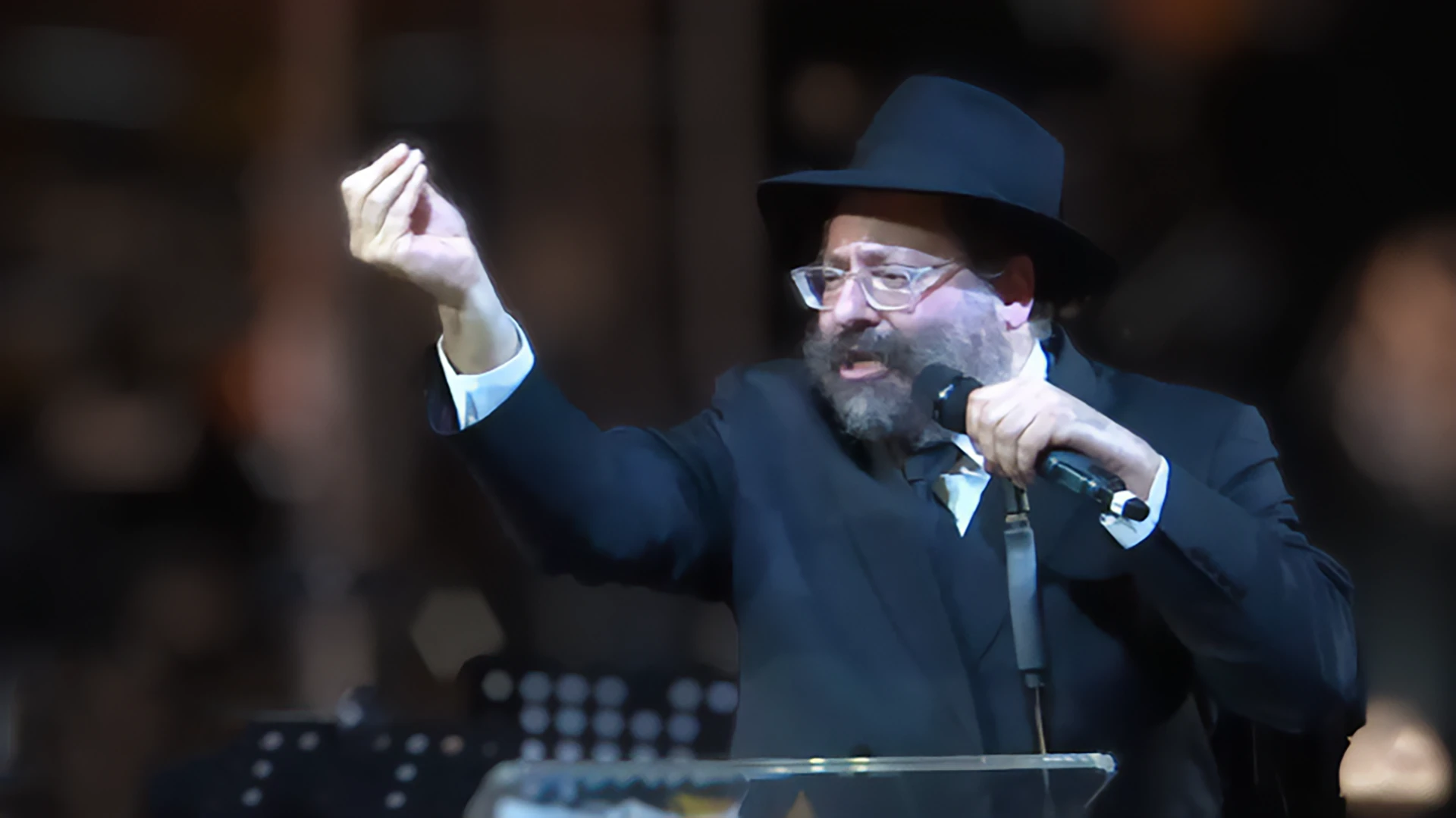
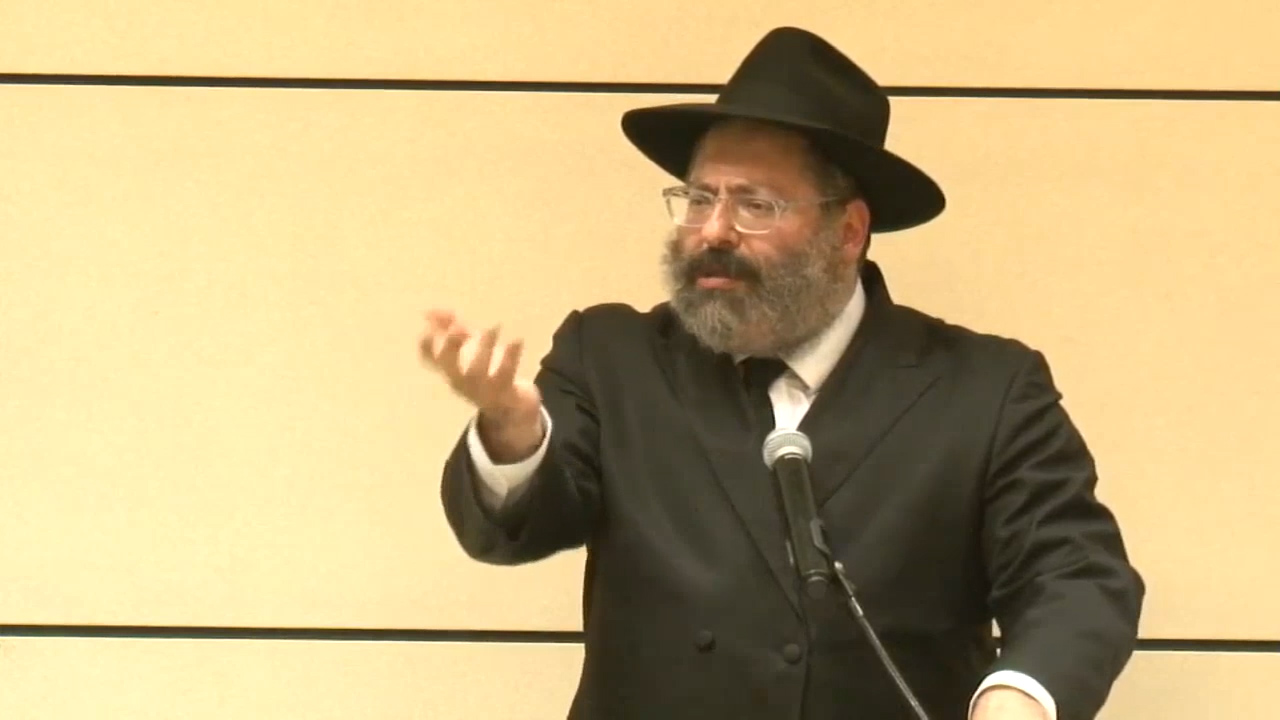

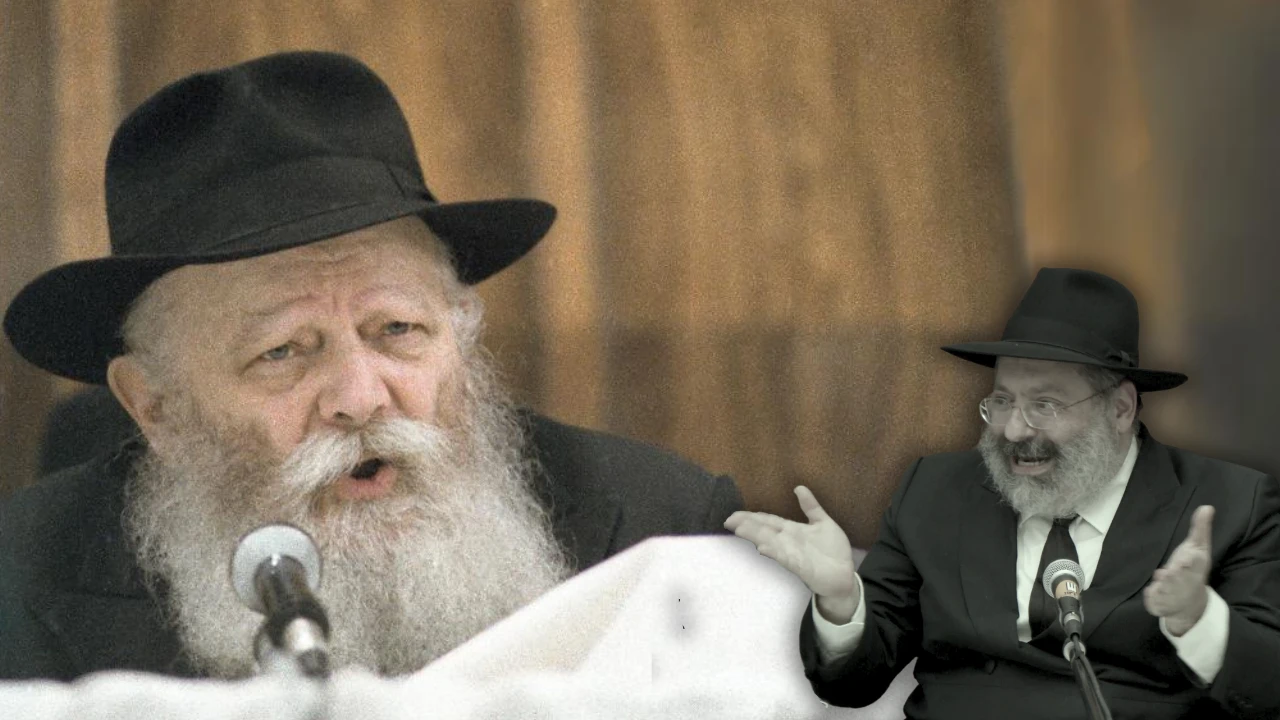




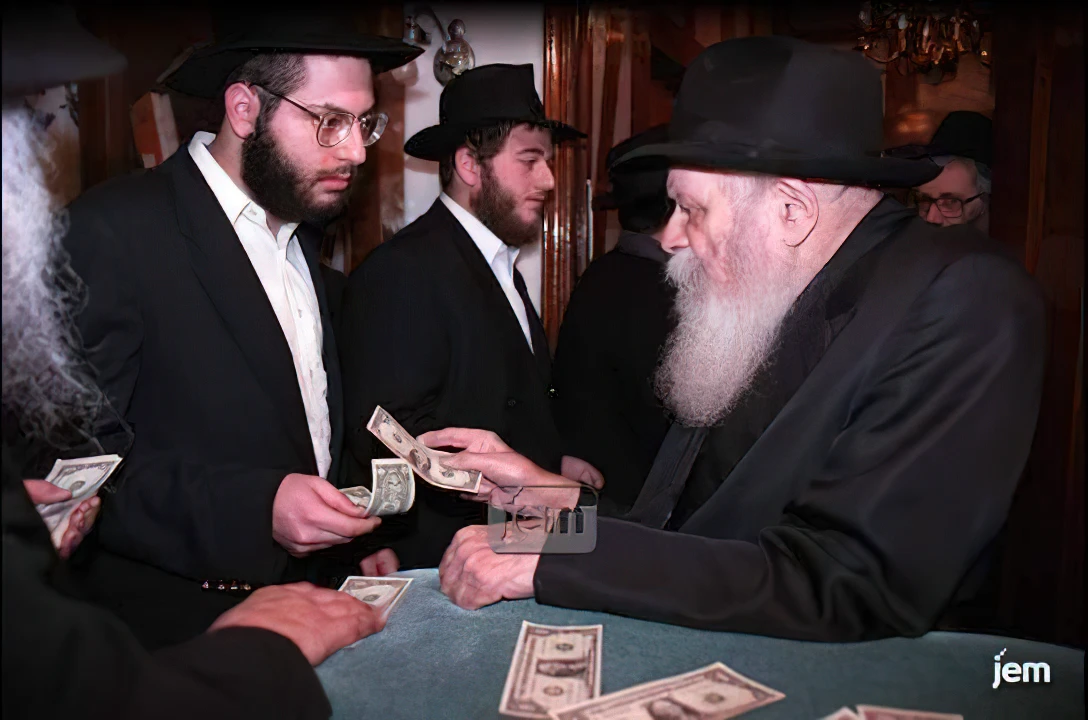



Please leave your comment below!
Patrick -1 year ago
This is an excellent teaching. Thank you. I didn't like your post related to making food out of various people (you did it in jest, but it comes across as very negative and even threatening to Palestinians). This, however, is useful and challenging teaching. How can people grieving from October 7 use these insights to grow closer to G-d, to change their treatment of the Palestinian people?
Reply to this comment.Flag this comment.
Anonymous -1 year ago
Repent, believe, hope. Those three words are the fabric of God's wishes for us. This was a great text to have read. Something to ponder: when Moses broke the stone, was there another underlying theory, which is that, Moses disagreed with all or one commendments. To live in the life of God, is to adhear to his lifestyle for us. It's hard due to secularism, but there is a house being built for all of us to repent, love and forgive and believe!
Reply to this comment.Flag this comment.
Ira Caplan -7 years ago
Real Flesh and Bone Torah Greatness in our Times
Reply to this comment.Flag this comment.
CH -7 years ago
Powerful, inspiring words
Reply to this comment.Flag this comment.
Dov Trietsch -7 years ago
Our lowest moment
Reply to this comment.Flag this comment.
Craig Lervin -7 years ago
Thanks
Reply to this comment.Flag this comment.
Hasamaych B'Chelko -7 years ago
From the Maggid of Mezeritch we learn to accept our humaness.
Reply to this comment.Flag this comment.
Sorah Birnbaum -7 years ago
A thought....
Reply to this comment.Flag this comment.
Anonymous -7 years ago
Requesting fuller explanation of Breaking the Tablets
Reply to this comment.Flag this comment.
Broken -9 years ago
I cannot thank you enough for your always encouraging words. My heart and soul thirsts for inspiration understanding and encouragement. I find it in your beautiful deep yet easy to digest lectures and articles. Thank you so much Rabbi Jacobson! May Hashem continue to give you strength and only good.
Reply to this comment.Flag this comment.
Liba Masha -7 years ago
Reply to this comment.Flag this comment.